- Home
- Penny Jordan
Cruel Legacy Page 2
Cruel Legacy Read online
Page 2
She could still remember her feeling of dismay when he had told her what he was doing. His mouth had started to twist with bitterness and, recognising what was coming, her heart had dropped even further.
‘Of course if that stupid old bag hadn’t gone and left what should have been mine to someone else, I wouldn’t need to work at all.’
Philippa had said nothing. There was no point in reminding him that his great-aunt Maud had had every right to leave her money to whomever she chose, even if that someone had turned out to be a six-foot-odd itinerant, a New Zealander who had knocked on her door one summer asking for casual work and who had stayed on over the winter to nurse her when she fell ill and broke her hip—facts of which they had known nothing until after her death, until Andrew, in his rage and disbelief, had virtually accused Tom Forster, twenty-nine to Maud Knighton’s eighty-odd, of being his great-aunt’s lover and of having seduced his, Andrew’s, inheritance away from him.
‘How could she do this to me … to our sons?’ Andrew had demanded, after he and Philippa had left the solicitor’s office.
‘Perhaps if we had visited her more …’ Philippa had suggested hesitantly.
‘What, go traipsing up to Northumberland? How the hell could we have done? You know how impossible it is for me to take time off work.’
Andrew had, of course, typically, threatened to take the matter to court, to have his aunt declared insane and the New Zealander guilty of forcing or threatening her into dispossessing him, but to Philippa’s surprise and relief Tom Forster had quietly and calmly offered to share his inheritance with Andrew on a fifty-fifty basis.
Andrew hadn’t wanted to accept. He had insisted that the very fact that he had made the offer proved that he knew Andrew would win any court case, but Philippa’s father and Robert had put pressure on Andrew to accept.
Robert’s emerging political ambitions made it imperative that his background, his family and their histories were all squeaky-clean; the last thing he wanted was the full distasteful story of Andrew’s quarrel with Tom Forster splashed all over the less savoury tabloids.
Philippa, sensitive to her father’s reactions, had been aware of the way he had distanced himself from Andrew afterwards, but Andrew, she suspected, had not. He was not that sort of man; other people’s feelings and reactions had always been things outside his understanding.
The last thing Philippa had expected, after all his complaints about how difficult life was going to be for them now that his expectations of what he would inherit had been so drastically diminished, was that he would actually part with some of the money. Not some of it, she reminded herself now, but all of it and more beside: money he had borrowed from the bank, boasting to her about the size of the loan the bank had given him, saying that showed how highly they regarded him and his business ability. She on the other hand had felt sick at the thought of their owing so much money.
‘How on earth will you ever be able to repay it?’ she had asked him.
He had laughed at her, telling her she knew nothing whatsoever about business, reminding her scornfully that she had no aptitude for it. ‘Your father was right; all the brains in the family went to your brothers.’
Philippa had winced. She had borne the burden of knowing she was a disappointment to her parents all her life. Ideally, they would have preferred another boy, not a girl, and then, when they had discovered that their third child could in no way compete intellectually with their elder two, they had turned away from her, concentrating instead on her brothers. She felt that they had been relieved when Andrew had asked her to marry him. She had only been nineteen, inexperienced and confused about what to make of her life.
‘I don’t want my wife working,’ Andrew had told her importantly once they were married, and she had resigned herself to giving up ideas of a career.
All he wanted her to do was to be a good wife and mother, Andrew had told her. He was the breadwinner, the wage earner. He didn’t like these strident modern women who seemed so out of touch with their femininity.
On their first wedding anniversary he had given her a diamond bracelet.
‘For my good, pretty girl,’ he had told her and then he had made love to her with the thing glittering on her arm. He had spent himself quickly and fiercely, leaving her slightly sore inside and unsatisfied. She remembered that when she had opened her eyes he had not been looking at her but at the bracelet.
She had worn it for the birthday meal he had insisted she invite her parents to. She had felt sick and headachy; she had just been pregnant with Rory, although she hadn’t known it at the time.
Andrew had lost his temper with her because the soufflé he had told her to make hadn’t risen, his mouth thinning into an angry, tight line.
He had never been a violent husband, but he had always resented anything that challenged his authority in even the smallest way. Her inability to make a perfect soufflé had been a challenge to that authority. His authority over her. His desire that she at all times reflect his success … his power … his massive ego.
When the children had been born it was just the same. They had to be a credit to him … always.
No, he had never been an easy man to live with, although no one else seemed to be aware of it. She was lucky to be married to him, other people told her. He was a good husband, her family said … adding approvingly that he had done well.
Just lately, though, he had seemed increasingly on edge, his temper flaring over the smallest thing. One moment he would be complaining about the amount she had spent on housekeeping, or protesting furiously about money she had spent on plants for the garden, the next he was announcing that he was buying a new car … that they were going on an expensive holiday.
When she had protested bewilderedly at his attitude, he had told her harshly that it was important to keep up appearances.
Appearances … Appearances were all-important to Andrew. She might not have much intelligence but at least she was pretty, her father had once said disparagingly.
Pretty …
‘Why do I want to marry you? Because I love you, pretty little thing,’ Andrew had told her when he proposed, then, ‘I can’t wait to show you off to everyone,’ he had told her when they got engaged, and, looking back, it seemed to her now that he had enjoyed her company in public far more than he had ever done in private.
Pretty … How she had grown to dislike that word.
She could hear a car coming up the drive. She got up, sliding out of bed and pulling on her housecoat. It was silk … a Christmas present from Andrew, ‘To wear when we stay with the Ronaldsons,’ he had told her with a smile.
‘I feel so sorry for him. That wife of his isn’t just plain, she’s downright ugly.’
‘He loves her,’ she had told him quietly.
‘Don’t be a fool. No man would love a woman who looks like that. He married her for her money; everyone knows that.’
The car had stopped. She frowned as she opened the bedroom door. The engine had sounded different from Andrew’s new Jaguar.
At first when he had started coming home later and later, she had assumed he was having an affair, and she had been surprised at how little she had minded, but then she had discovered that what he had actually been doing was working.
She had begun to worry then, but when she had tried to talk to him he had told her not to pester him.
‘For God’s sake, I’ve got enough on my mind without you nagging me,’ he had told her. ‘Just leave me alone, will you? This damned recession …’
‘If things are that bad, perhaps we should sell the house,’ she had suggested, ‘take the boys out of private school.’
‘Do what … ? You stupid fool, we might as well take out an advertisement in The Times to announce that we’re going bust as do that … have you no sense? The last thing I need right now is to have people losing confidence in us, and that’s exactly what will happen if we sell this place.’
Last weekend they had gone to se
e her brother and Robert and Andrew had played golf, leaving Philippa and Lydia to a rather disjointed afternoon of talk. When the men had got back there was a strained atmosphere between them and Andrew had announced that they had to leave.
Philippa hadn’t been sorry to go. She and Robert had never been close. She had always been much closer to her other brother, Michael, and Lydia she had never liked at all. Andrew still hadn’t come in. She went downstairs, thinking he must have forgotten his keys. When she opened the door and saw the police car outside, she tensed.
‘Mrs Ryecart?’
The policeman came towards her. There was a policewoman with him. Both of them had grave faces.
‘If we might just come in …’
She knew, of course … had known straight away that Andrew was dead, but she had thought it must be an accident … not this … not a deliberate taking of his own life. They had tried to break it to her gently. Found in his car … the engine running … unfortunately reached the hospital too late.
Suicide.
WPC Lewis would stay with her, the policeman was saying quietly. ‘Is there anyone else you’d like us to inform … your husband’s parents … ?’
Philippa shook her head.
‘I’ll make you a cup of tea,’ the WPC was saying. ‘You’ve had a shock.’
Suicide …
She started to tremble violently.
CHAPTER ONE
‘MUM, Paul’s still in the bathroom and he won’t let me in.’
Sally paused on the landing, grimacing as she stooped down to pick up the sock she had dropped on her last trip downstairs with the dirty washing. Her back still ached from working yesterday.
‘Paul, hurry up,’ she commanded as she rapped on the bathroom door.
‘He knows I’m going to Jane’s and I’m going to be late now,’ Cathy wailed.
‘No, you won’t,’ Sally soothed her daughter. ‘He’ll be out in a minute.’
‘He’s doing it deliberately. I hate him,’ Cathy announced passionately.
Sally had just finished loading the washing machine when Paul came into the kitchen. Was he never going to stop growing? she wondered. Those new jeans she had bought for him last month were already too short.
‘Where’s Dad?’ he demanded.
‘He’s not back yet,’ she told him.
Joel had been irritable and difficult to live with ever since they had heard the news that Andrew Ryecart had committed suicide. Sally knew that he was worried about his job, but there was no need to take it out on them—it wasn’t their fault!
‘He said he was going to come home early,’ Paul grumbled. ‘He was going to take me fishing.’
Sally’s face tightened. This wouldn’t be the first time recently that Joel had done something like this. Only last week they’d had a row about the fact that he’d forgotten that she’d arranged for them to go round to her sister’s and had arranged to play snooker instead.
‘You were the one who arranged to see them,’ he had countered when she had complained.
‘Well, someone had to,’ she had told him. ‘If it was left to you we’d never see anyone from one blue moon to another.’
‘I forgot,’ he’d told her, shrugging the matter aside as though it weren’t important. Unwilling to continue arguing with him in front of the children, Sally had gritted her teeth and said nothing, but inwardly she had been seething.
She had still been angry with him about it later that night when he had come in from his snooker match, walking away from him when he started telling her about it and later turning her back on him in bed, freezing her body into rejecting immobility when he had reached out and touched her breast.
They had argued about that as well. In hushed, angry whispers so as not to wake the children. They were getting older now and Cathy in particular was becoming sharply aware. Only a couple of months ago she had come home from school asking if Sally and Joel still had sex.
‘Well, you shouldn’t have had much problem answering that one,’ Joel had grunted when she’d told him.
She frowned again, remembering the conversation which had followed.
‘I suppose that’s going to be another excuse, is it?’ Joel had demanded aggressively. ‘You don’t want the kids overhearing us. Not that there is very much to overhear these days.’
‘Sex—you’re obsessed with it,’ she had countered. ‘We can’t discuss anything these days without your turning it into an argument about sex.’
‘Perhaps that’s because arguing about it is just about all we do,’ he had told her angrily.
It hadn’t always been like this between them—far from it. When they had first married… when they had first met…
She had been a shy, awkward girl of fourteen, her shyness made worse by the fact that she and her parents had only recently moved into the area. At school she had felt isolated and friendless. Her sister, seven years her senior, was already adult, and it was probably inevitable that the others should have picked up on her loneliness and started bullying her.
It had been Joel who had come to her rescue; two years older than her, a tall, dark-haired, broad-shouldered boy with an air of solid self-confidence about him on which she had instinctively and gratefully leaned.
He was the middle child in a family of five, with two older sisters and a pair of younger, twin brothers. The chaotic and unruly household absent-mindedly presided over by his mother had been in such direct contrast to her own orderly home lifestyle that it had fascinated her. Joel’s father was a loud, boisterous bear of a man who made his living in a variety of different ways, from running a market stall to working in a friend’s pub.
He had something of the gypsy in him, both in his looks and his way of life. Joel’s mother had, so local gossip went, married down when she’d married him. Vague and fragile, and completely unworldly, she treated her children as though she was still not quite convinced that she had actually produced them.
Her elder daughter was more a mother to her siblings than a sister, and Joel at sixteen, already mature beyond his years, had been someone for Sally’s fourteen-year-old self to look up to with shy adoration.
They had grown apart after they left school, Joel to begin his apprenticeship and she to begin nursing, and had only met again later through a mutual friend.
There had been sexual attraction enough between them then and more than enough to spare, although Joel had not rushed her into bed.
She had liked that in him. It showed restraint—and respect.
Initially, her parents hadn’t been too keen on their marrying. Her mother had cherished hopes of her marrying a doctor, and Sally had had to suffer listening to her mother’s praises of her sister Daphne’s marriage to a teacher, a white-collar worker.
Both her parents and Joel’s were dead now, and Joel’s brothers and sisters had moved right away from the Lincolnshire town where they had been born and raised. The only family close by now was Sally’s sister Daphne, and Daphne always managed to make Sally feel inferior, second-rate. She and Joel had never liked one another and she knew that Joel disliked her visiting her sister.
‘What’s wrong with you now?’ Joel had demanded after Daphne had summoned her so that she could show off her new kitchen.
‘Nothing,’ she had retorted, but later that night, looking round her own kitchen, she had suddenly started to contrast it and the rest of her home with Daphne’s much larger house. When Joel had seen the kitchen brochures she had brought home, his mouth had compressed immediately.
‘A new kitchen?’ he had stormed. ‘Are you crazy, Sal—have you seen the price of this stuff?’
The quarrel that had followed had been one of the worst they had ever had.
‘We could take out a loan for it,’ Sally had told Joel stubbornly. ‘That’s what Daphne and Clifford did. I could work extra hours to pay for it and——’
‘No,’ Joel had interrupted her. ‘We can’t afford it and I don’t want——’
‘W
e couldn’t afford for you to have a new car or a garage to keep it in,’ Sally had pointed out bitterly. ‘But you still got them.’
She had known from the white look round his lips that she had gone too far, but stubbornly she had refused to take the words back. Instead she had continued recklessly, ‘If I’m going to have to work to pay for your car, Joel, I might as well do a bit extra and pay for something I want as well.’
Joel hadn’t made any response, but the look on his face, in his eyes, had made her catch her bottom lip between her teeth.
Joel was a very proud man—too proud, she sometimes thought—but then her guilt had changed to irritation. Why should she be the one to feel bad just because she wanted a new kitchen? Was it really so much to ask? The trouble with Joel was that his precious pride was more important to him than she was, or so she was beginning to think.
In the end, Joel had given way and she had got her kitchen. The units weren’t the same as her sister’s expensive hand-painted ones, of course. Joel had installed theirs himself, working in the evenings and at weekends, and the day he had finished them she had come home from night duty to find that he had worked all through the night to get them finished.
He had grinned at her like a boy as he’d invited her to admire his handiwork, sweeping her up into his arms and kissing her.
He had smelled of wood and paint and sweat, his exuberance reminding her of the boy he had been when they first met.
The kitchen had been perfect… just what she had wanted, and she hadn’t resisted when he had whispered suggestively to her that they play out a certain sexy scene from the film Fatal Attraction to celebrate its completion …
* * *
Paul had put on his coat and was opening the back door.
‘Where are you going?’ Sally asked him sharply.
‘Round to Jack’s,’ he told her. ‘Dad still isn’t back and it’s going to be too late now.’
She let him go, feeling her irritation against Joel grow. It wasn’t fair, the way he always put himself first and refused to pull his weight, leaving her to do everything.

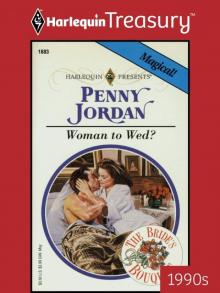 Woman To Wed?
Woman To Wed? Wanting
Wanting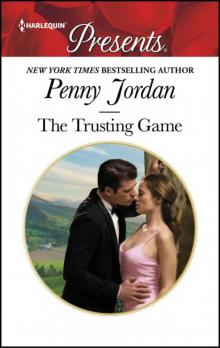 The Trusting Game (Presents Plus)
The Trusting Game (Presents Plus)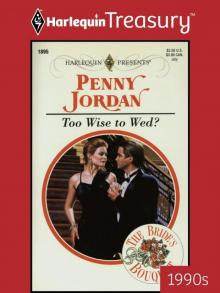 Too Wise To Wed?
Too Wise To Wed?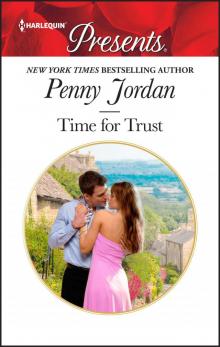 Time for Trust
Time for Trust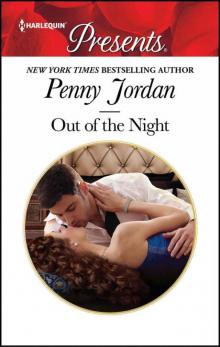 Out 0f The Night (HQR Presents)
Out 0f The Night (HQR Presents) Dangerous Interloper (Lessons Learned II Book 8; HQR Presents Classic)
Dangerous Interloper (Lessons Learned II Book 8; HQR Presents Classic)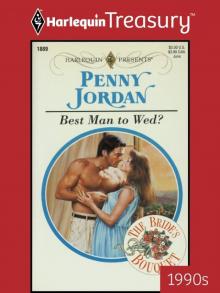 Best Man To Wed?
Best Man To Wed? They're Wed Again
They're Wed Again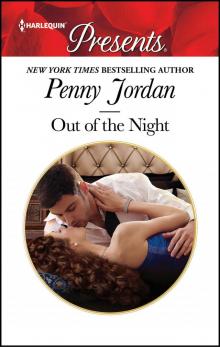 Out of the Night
Out of the Night An Innocent's Surrender
An Innocent's Surrender Marriage: To Claim His Twins
Marriage: To Claim His Twins Deal With the Devil--3 Book Box Set
Deal With the Devil--3 Book Box Set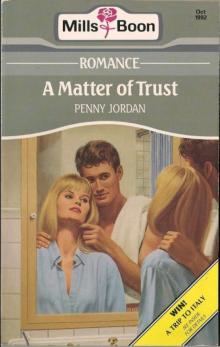 Matter of Trust
Matter of Trust Vacation with a Commanding Stranger
Vacation with a Commanding Stranger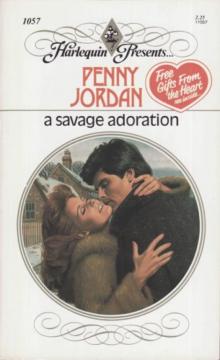 A Savage Adoration
A Savage Adoration The Mistress Purchase
The Mistress Purchase Reclaimed by the Ruthless Tycoon
Reclaimed by the Ruthless Tycoon The Tycoon's Forbidden Temptation
The Tycoon's Forbidden Temptation Sinful Nights: The Six-Month MarriageInjured InnocentLoving
Sinful Nights: The Six-Month MarriageInjured InnocentLoving Bedding His Virgin Mistress
Bedding His Virgin Mistress Escape from Desire
Escape from Desire Claiming His Shock Heir
Claiming His Shock Heir Stronger than Yearning
Stronger than Yearning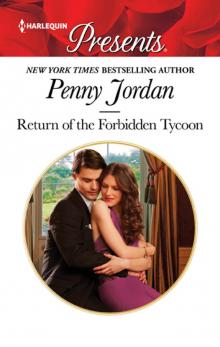 Return of the Forbidden Tycoon
Return of the Forbidden Tycoon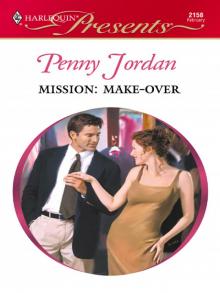 Mission: Make-Over
Mission: Make-Over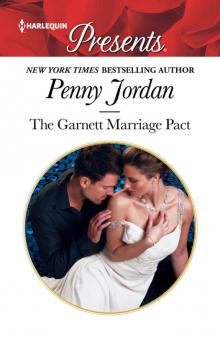 The Garnett Marriage Pact
The Garnett Marriage Pact Wanting His Child
Wanting His Child A Little Seduction Omnibus
A Little Seduction Omnibus The City-Girl Bride
The City-Girl Bride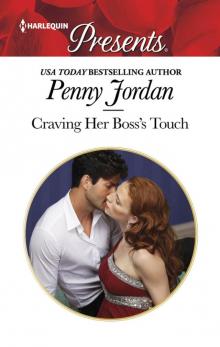 Craving Her Boss's Touch
Craving Her Boss's Touch Starting Over
Starting Over Phantom Marriage
Phantom Marriage The Italian Duke's Virgin Mistress
The Italian Duke's Virgin Mistress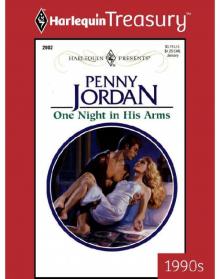 One Night in His Arms
One Night in His Arms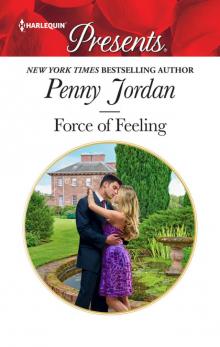 Force of Feeling
Force of Feeling Forbidden Loving
Forbidden Loving For Better for Worse
For Better for Worse Silver
Silver Rival Attractions & Innocent Secretary...Accidentally Pregnant
Rival Attractions & Innocent Secretary...Accidentally Pregnant A Bride for His Majesty s Pleasure
A Bride for His Majesty s Pleasure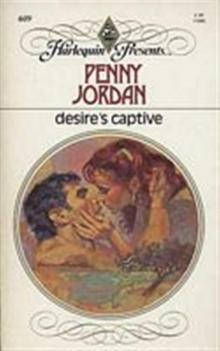 Desire's Captive
Desire's Captive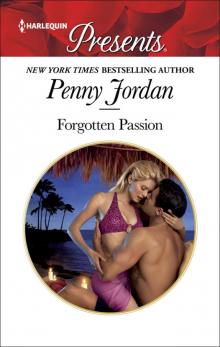 Forgotten Passion
Forgotten Passion Taken Over
Taken Over Taken by the Sheikh
Taken by the Sheikh Sicilian Nights Omnibus
Sicilian Nights Omnibus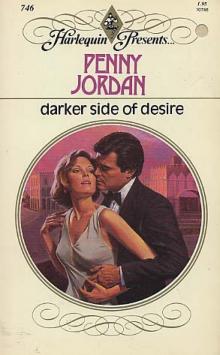 Darker Side Of Desire
Darker Side Of Desire A Royal Bride at the Sheikh s Command
A Royal Bride at the Sheikh s Command The Ultimate Surrender
The Ultimate Surrender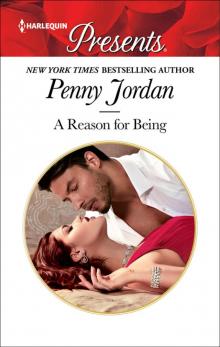 A Reason for Being
A Reason for Being A Cure for Love
A Cure for Love Bought with His Name & the Sicilian's Bought Bride
Bought with His Name & the Sicilian's Bought Bride Marriage Make-Up & an Heir to Bind Them
Marriage Make-Up & an Heir to Bind Them Bitter Betrayal
Bitter Betrayal Captive At The Sicilian Billionaire’s Command
Captive At The Sicilian Billionaire’s Command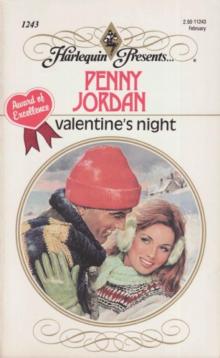 Valentine's Night
Valentine's Night The Convenient Lorimer Wife
The Convenient Lorimer Wife Reawakened by His Touch
Reawakened by His Touch Substitute Lover
Substitute Lover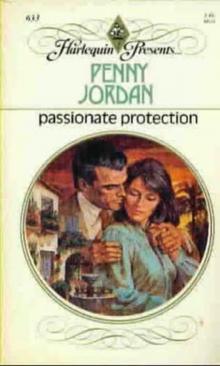 Passionate Protection
Passionate Protection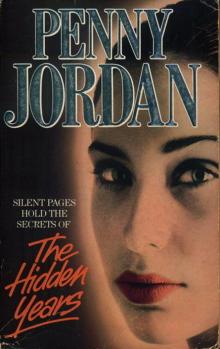 The Hidden Years
The Hidden Years So Close and No Closer
So Close and No Closer Passion and the Prince
Passion and the Prince Virgin for the Billionaire's Taking
Virgin for the Billionaire's Taking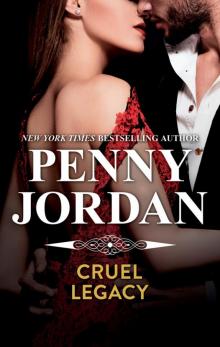 Cruel Legacy
Cruel Legacy Payment in Love
Payment in Love The Wealthy Greek's Contract Wife
The Wealthy Greek's Contract Wife Penny Jordan Collection: Just One Night
Penny Jordan Collection: Just One Night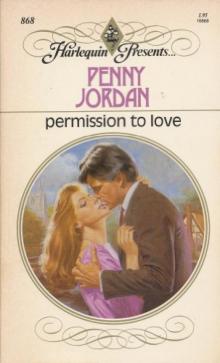 Permission to Love
Permission to Love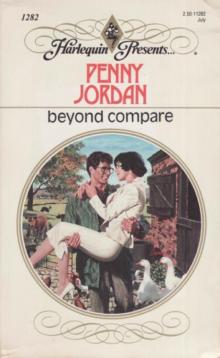 Beyond Compare
Beyond Compare When the Magnate Meets His Match
When the Magnate Meets His Match A Time to Dream
A Time to Dream Christmas Nights
Christmas Nights Christmas with Her Billionaire Boss
Christmas with Her Billionaire Boss The Sheikh's Baby Omnibus
The Sheikh's Baby Omnibus The Tycoon's Virgin
The Tycoon's Virgin Falcon's Prey
Falcon's Prey Mistress Of Convenience
Mistress Of Convenience The Perfect Father
The Perfect Father Stranger from the Past & Proof of Their Sin
Stranger from the Past & Proof of Their Sin A Little Revenge Omnibus
A Little Revenge Omnibus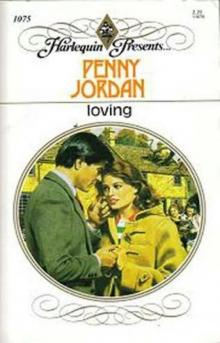 Loving
Loving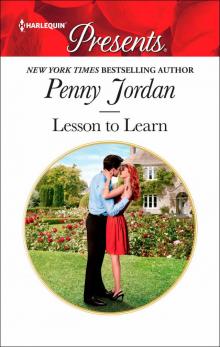 Lesson to Learn
Lesson to Learn Second Chance with the Millionaire
Second Chance with the Millionaire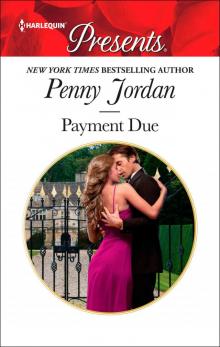 Payment Due
Payment Due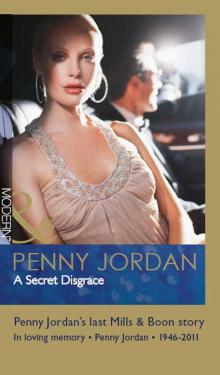 A Secret Disgrace
A Secret Disgrace Conveniently His Omnibus
Conveniently His Omnibus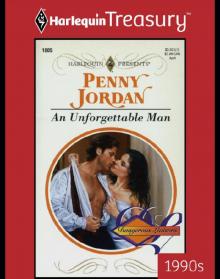 An Unforgettable Man
An Unforgettable Man The Tycoon She Shouldn't Crave
The Tycoon She Shouldn't Crave Pride & Consequence Omnibus
Pride & Consequence Omnibus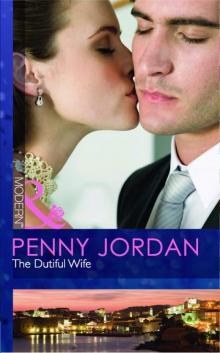 The Dutiful Wife
The Dutiful Wife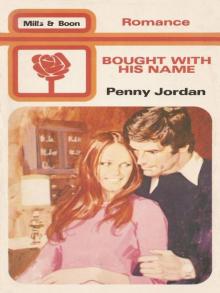 Bought With His Name
Bought With His Name The Friendship Barrier
The Friendship Barrier High Society
High Society The Price of Royal Duty
The Price of Royal Duty A Scandalous Inheritance
A Scandalous Inheritance At His Convenience Bundle
At His Convenience Bundle The Blackmail Baby
The Blackmail Baby Prince of the Desert
Prince of the Desert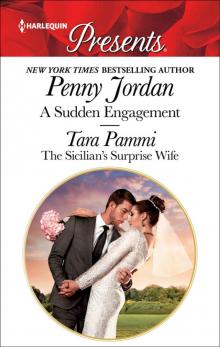 A Sudden Engagement & the Sicilian's Surprise Wife
A Sudden Engagement & the Sicilian's Surprise Wife Unexpected Pleasures
Unexpected Pleasures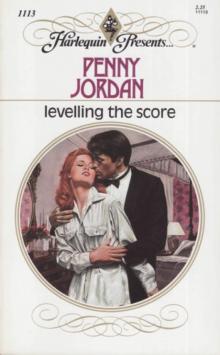 Levelling the Score
Levelling the Score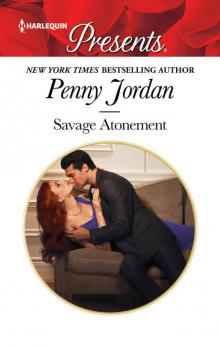 Savage Atonement
Savage Atonement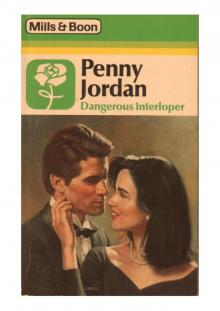 Dangerous Interloper
Dangerous Interloper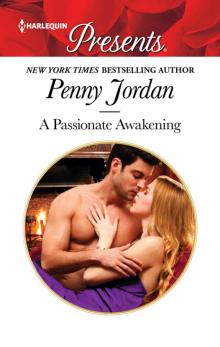 A Passionate Awakening
A Passionate Awakening Ruthless Passion
Ruthless Passion Time Fuse
Time Fuse Past Passion
Past Passion Her One and Only
Her One and Only The Innocent's Secret Temptation
The Innocent's Secret Temptation A Stormy Spanish Summer
A Stormy Spanish Summer The Marriage Demand
The Marriage Demand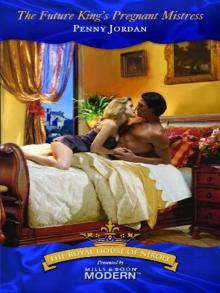 Future King's Pregnant Mistress
Future King's Pregnant Mistress Unwanted Wedding
Unwanted Wedding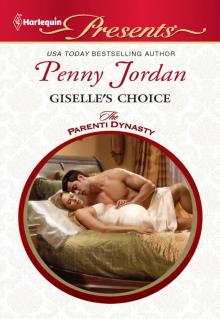 Giselle's Choice
Giselle's Choice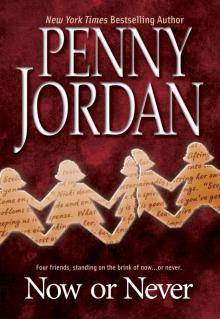 Now or Never
Now or Never Blackmailed by the Vengeful Tycoon
Blackmailed by the Vengeful Tycoon Lovers Touch
Lovers Touch Scandalous Seductions
Scandalous Seductions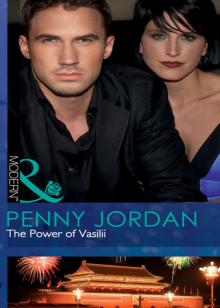 The Power of Vasilii
The Power of Vasilii Possessed by the Sheikh
Possessed by the Sheikh It Happened At Christmas (Anthology)
It Happened At Christmas (Anthology) The Perfect Lover
The Perfect Lover The Flawed Marriage
The Flawed Marriage The Greek's Runaway Bride
The Greek's Runaway Bride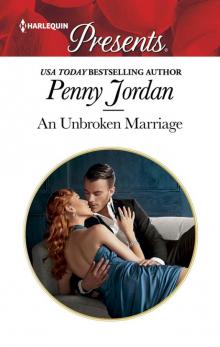 An Unbroken Marriage
An Unbroken Marriage Hired by the Playboy
Hired by the Playboy The Blackmail Marriage
The Blackmail Marriage Daughter of Hassan
Daughter of Hassan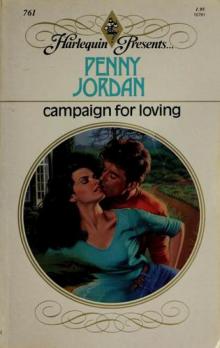 Campaign For Loving
Campaign For Loving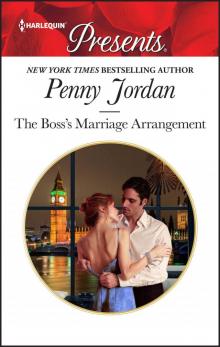 The Boss's Marriage Arrangement
The Boss's Marriage Arrangement Seduced by the Powerful Boss
Seduced by the Powerful Boss Marriage Without Love & More Than a Convenient Marriage?
Marriage Without Love & More Than a Convenient Marriage?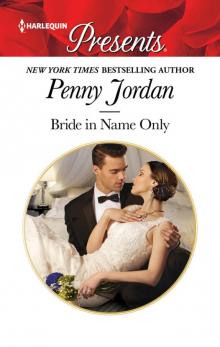 Bride in Name Only
Bride in Name Only Her Shock Pregnancy Secret
Her Shock Pregnancy Secret Propositioned in Paradise
Propositioned in Paradise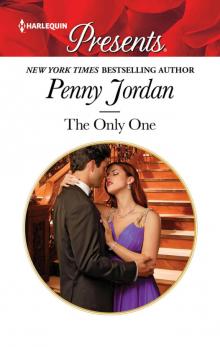 The Only One
The Only One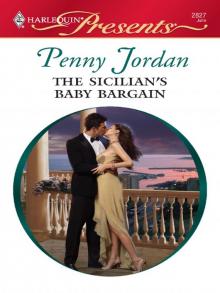 The Sicilian s Baby Bargain
The Sicilian s Baby Bargain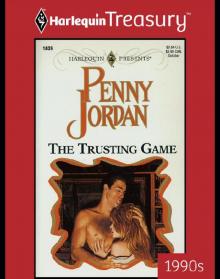 The Trusting Game
The Trusting Game The Most Coveted Prize
The Most Coveted Prize One-Click Buy: September Harlequin Presents
One-Click Buy: September Harlequin Presents In Her Enemy's Bed
In Her Enemy's Bed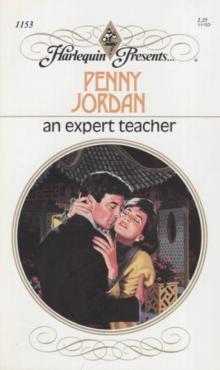 An Expert Teacher
An Expert Teacher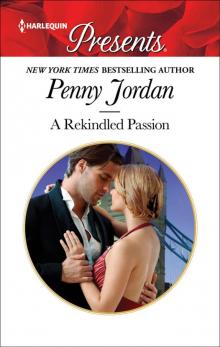 A Rekindled Passion
A Rekindled Passion The Reluctant Surrender
The Reluctant Surrender Shadow Marriage
Shadow Marriage A Scandalous Innocent
A Scandalous Innocent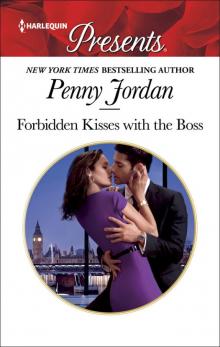 Forbidden Kisses with the Boss
Forbidden Kisses with the Boss Bound Together by a Baby
Bound Together by a Baby Second-Best Husband
Second-Best Husband Response
Response His Untouched Bride
His Untouched Bride A Kind of Madness
A Kind of Madness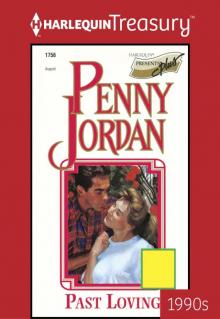 Past Loving
Past Loving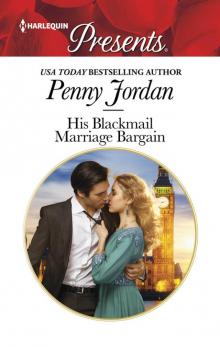 His Blackmail Marriage Bargain
His Blackmail Marriage Bargain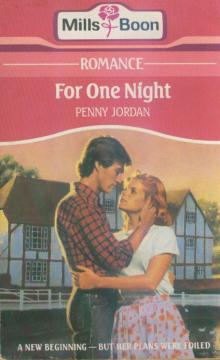 For One Night
For One Night Legally His Omnibus
Legally His Omnibus Back in the Marriage Bed
Back in the Marriage Bed Man-Hater
Man-Hater